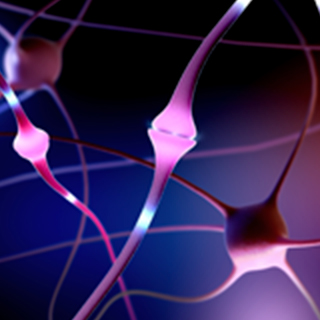
Multiple Sclerosis and Neuroinflammation Center
The UCSF Multiple Sclerosis and Neuroinflammation Center is one of California's premier programs for evaluating, diagnosing and treating adult and pediatric patients with inflammatory diseases of the nervous system. Our knowledge and expertise in caring for patients with multiple sclerosis (MS) is recognized by the National Multiple Sclerosis Society, which has designated us a comprehensive care center and a Partner in MS Care.
Our team includes renowned experts in neurology, neuro-ophthalmology, neuropsychology, infectious disease and rehabilitative medicine. They work closely with one another – as well as with specialists in other fields, like urology, gastroenterology, and rheumatology – to provide personalized, comprehensive care for patients with any type of neuroinflammatory disease. The state-of-the-art tools and services of our Neurodiagnostic Center allow us to evaluate patients' conditions in great detail and use our findings to design the best treatment plan for each person.
Our goal is to help patients manage their symptoms and stay as active, healthy and independent as possible. The team also serves as a resource for education and emotional support for patients and their families. Telemedicine follow-up visits are available for those who find them more convenient.
Our research
In addition to delivering the best possible patient care, we're committed to advancing medical understanding of the causes of neuroinflammatory disease and to looking for potential cures. UCSF is a top recipient of research funding from the National Institutes of Health and National Multiple Sclerosis Society.
Our center's doctors are on the forefront of research into the causes of MS and new ways to treat it. Dr. Stephen Hauser, director of the UCSF Weill Institute for Neurosciences, was awarded the prestigious John Dystel Prize in 2008 for his pioneering studies on genetic susceptibility to MS. Other doctors on our team helped develop breakthrough therapies, such as the drug ocrelizumab, a treatment for progressive MS approved by the Food and Drug Administration in 2017.
Many of our doctors also lead studies at the UCSF Center for Encephalitis & Meningitis, which is focused on developing better testing and treatments for encephalitis (inflammation of the brain) and meningitis (inflammation of the membranes surrounding the brain and spinal cord).
Thanks to our robust research program, our patients often have opportunities to take part in clinical trials, studies to evaluate promising therapies.
Learn more about clinical trials and how they work.
Valet parking
Valet parking is available at the Campus Way entrance. If you have a DMV-issued Disabled Person parking placard, notify the parking attendant during check-in to receive a discounted rate.
Visit our Campus Life Services website for more information on parking and transportation.
Our locations
Our team
Clinical trials
VIRtual Versus UsuAL In-office Care for Multiple Sclerosis (VIRTUAL-MS)
The primary outcome will be disability worsening in one of the Multiple Sclerosis Functional Composite components at 24 months. Worsening is defined as 20% worsening in Timed 25 foot walking speed (T25FW), 20% worsening in the 9 h...
Recruiting
Impact of Ocrelizumab on Cerebrospinal Fluid Biomarkers at Multiple Sclerosis Onset
Comparison of intrathecal synthesis of gammaglobulins in treatment-naïve relapsing MS and clinically isolated syndrome participants before and after 3 years of treatment with ocrelizumab. Intrathecal synthesis is measured by eithe...
Recruiting
Traditional Versus Early Aggressive Therapy for Multiple Sclerosis Trial
Time to sustained disability progression is measured by the Expanded Disability Status Scale plus (EDSS+): a composite endpoint that includes EDSS change (change at any 6 month time point of > 1.0 point if baseline EDSS is < 5.5 o...
Recruiting
Assessment of Clemastine Fumarate as a Remyelinating Agent in Acute Optic Neuritis (ReCOVER)
To evaluate the efficacy of clemastine relative to placebo for reducing P100 latencies on full field transient pattern reversal visual evoked potentials. Measure will be reported as difference in P100 latency from baseline to 9 mo...
Recruiting
Primary Progressive Multiple Sclerosis (PPMS) Study of Bruton's Tyrosine Kinase (BTK) Inhibitor...
Time to onset of 6 month CDP defined as follows: Increase of ≥1.0 point from the baseline expanded disability status scale (EDSS) score when the baseline score is ≤5.5, or Increase of ≥0.5 points when the baseline EDSS score is >...
Recruiting
Bazedoxifene Acetate as a Remyelinating Agent in Multiple Sclerosis
The primary objective is to evaluate the efficacy of BZA relative to placebo for reducing P100 latencies on full field transient pattern reversal visual evoked potentials (VEPs). In response to a visual stimulus, cortically genera...
Recruiting
Awards & recognition
-

Among the top hospitals in the nation
-

Best in California and No. 2 in the nation for neurology & neurosurgery
Support services
Plan your visit
What to Bring
- Photo I.D.
- Health insurance card
- Insurance authorization, if required
- Doctor's referral, if required
- Recent test results related to your condition
- List of your medications, including dosages, plus any you're allergic to
- List of questions you may have
- Device or paper for taking notes
Our research initiatives
-

UCSF Multiple Sclerosis Center Research
The UCSF Multiple Sclerosis Center's research program investigates potential new treatments and works to improve understanding of the disease, including the effects of genes, the environment and the immune system.
-

UCSF Center for Encephalitis Meningitis
The UCSF Center for Encephalitis & Meningitis team has experts in the many conditions that can cause encephalitis and meningitis. Our research focuses on developing better diagnostic tests to improve care for patients with these illnesses.






























